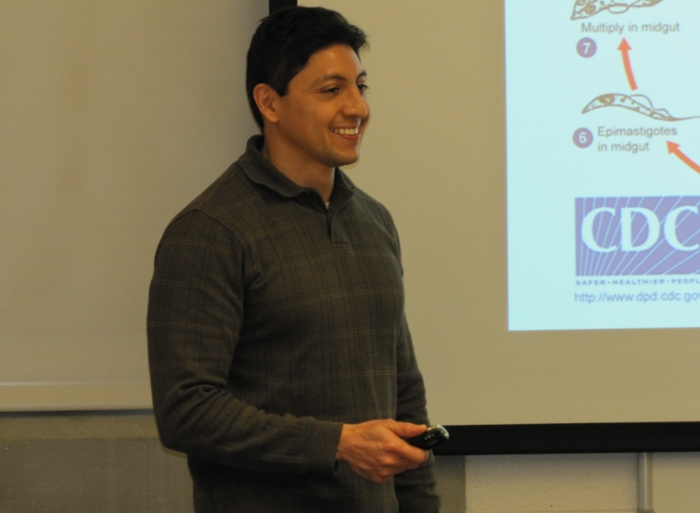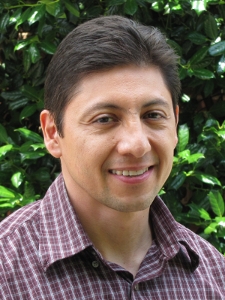NIMBioS Seminar Series
In conjunction with the interdisciplinary activities of the National Institute for Mathematical and Biological Synthesis (NIMBioS), a seminar series on topics in mathematical biology will be hosted at NIMBioS every other Tuesday at 3:30 p.m. (unless otherwise noted). While the Hallam Auditorium, Room 206, is being renovated, seminars will be held in Room 105, Claxton Building, 1122 Volunteer Blvd. Seminar speakers will focus on their research initiatives at the interface of mathematics and many areas of the life sciences. Light refreshments will be served in the 1st floor visitor breakroom beginning 30 minutes before each talk. Faculty and students from across the UT community are welcome to join us.
Time/Date: Tuesday, November 5, 2013, 3:30 p.m.*
Location:
Room 105, Claxton Building, 1122 Volunteer Blvd.
Speaker:
Dr. Clemente Aguilar, NIMBioS postdoctoral fellow
Topic:
Computational characterization of GPI-anchored proteins in Trypanosoma cruzi and their potential use as vaccine candidates
Abstract:
The plasma membrane of the causative agent of Chagas' disease, the parasite Trypanosoma cruzi, is covered with a dense, protective surface coat. This surface coat is a monolayer of millions of variant surface glycoproteins (VSG) that protect the parasite from the innate immune system and, through antigenic variation, against the specific host immune response. Most VSGs in the parasite are proteins attached to the cell membrane via glycosylphosphatidylinositol (GPI) anchors. A better understanding of GPIs could lead to the discovery of new anti-trypanosome drugs or a preventive vaccine against the disease. Liquid chromatography tandem mass spectrometry (LC-MS/MS) is often the technique of choice for characterizing GPIs. However, experimental samples consist of thousands of MS spectra, each of which is a complex piece of data that must be analyzed to extract relevant information about the biomolecules. These data sets are often noisy and therefore require sophisticated and robust tools that are capable of efficiently processing the information. No computational tool for characterizing the chemical structures of GPI is available to date. In this talk I will describe a proposed computational approach for the identification and characterization of GPIs in LC-MS/MS datasets. Additionally, the role of GPIs as vaccine candidates will be discussed.
*Join us for refreshments at 3 p.m. in the 1st floor visitor breakroom.
Seminar Flyer (pdf)
For more information about this and other NIMBioS Seminars, visit /seminars.

NIMBioS
1122 Volunteer Blvd., Suite 106
University of Tennessee
Knoxville,
TN 37996-3410
PH: (865) 974-9334
FAX: (865) 974-9461
Contact NIMBioS



